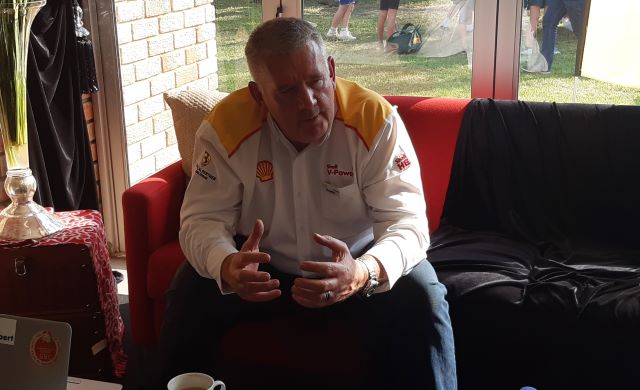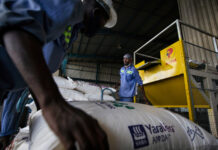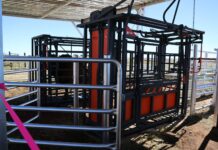Since reaffirming its position in 2018 as the partner to the South African farmer, Shell Downstream South Africa continues to emphasise its commitment to the farmer by showcasing how the total cost of ownership can be reduced by making use of the correct supplier and industry expertise.
After reaffirming its commitment to the agriculture sector in 2018, Shell Downstream South Africa is continuing its mission to ensure that it remains a valuable partner to farmers across South Africa.
Speaking at NAMPO 2019, Anton Niemann, General Manager Lubricants at Shell Downstream South Africa, reinterred his passion for agriculture, commenting that his involvement with the sector has stemmed across a number of years, and has allowed him to form a number of key and valuable partnerships and friendships.
“Since Shell’s inception at NAMPO in 1967, we have gained a number of valuable partnerships with not only agricultural organisations but the farmer themselves”, comments Niemann. “As such, we do not only offer the farmer premium lubricants, but our industry expertise and knowledge are key elements to ensuring that farm machinery experiences minimal downtime, and this in turn leads to an increase in financial output.”
By working together with the farmer, Shell is able to supply farmers with a number of advantageous products such as fuel, fleet, and lubrication solutions. Further, the company’s R&D investment, long-standing history in the country, and the ability to understand the agri market’s needs makes Shell the ideal partner to the farmer.
“In an environment where meeting demand by maximising productivity and minimising costs is key, we as Shell, believe that the proper lubrication of farming equipment is essential to growing productivity and reducing the total cost of ownership of machinery” expounds Niemann. “As such, we believe that the potential impact of effective equipment lubrication on equipment durability and reliability is too often underestimated.”
Shell Lubricants has worked closely with customers to help identify opportunities to reduce maintenance costs and enhance equipment productivity by enhancing some of its lubrication. These enhancements contribute to Total Cost of Ownership (TCO) savings and help extract the best possible value from machinery.
Shell believes that the engines, axels, and transmissions of farming equipment provide some of the greatest lubrication challenges in the agricultural sector, and comment that by making use of the correct engine oil helps protect equipment in all conditions, even when operating at maximum load. Further, by guarding against wear, deposits and corrosion, it can help enable machinery to operate efficiently, in conjunction with reducing the risk of costly unplanned downtime.
“With modern farming machinery working under higher loads, the demands on transmission lubricants are increasing,” continues Niemann. “The universal transmission oil is, for most farmers, the most vital lubricant. It must successfully lubricate the transmission, wet brakes and hydraulic systems of machines – including tractors, diggers and combine harvesters – to help keep equipment running smoothly for longer.”
“We consider lubrication management to be as vital as choosing the correct lubricant for the job. Many businesses do not realise the potential benefits of effective lubrication management, and even the best product cannot perform effectively if it is not applied and managed correctly.”
Effective lubrication management is vital to unlock potential total cost of ownership (TCO) savings. It can help deliver value from improved productivity and reductions in lubricant consumption, maintenance and operating costs.”
Niemann expounds that he considers six steps to ensure proper lubrication management:
- Right storage and handling – the lubricant must be stored in the right conditions and handled correctly to avoid contamination and preserve its key characteristics.
Right place – for the oil or grease to reach the right surface, it must be properly applied to the equipment.
Right time – the correct frequency of oil change or re-greasing ensures the lubricant reaches the surface at the right time. Delays can result in accelerated wear.
Right amount – the correct volume of lubricant or grease applied and topped up protects moving parts effectively.
Right monitoring – regular sampling and analysis ensure the lubricant remains fit for purpose. Early indications of equipment wear must be checked for. Inspections also ensure the consistent application of the first four steps. For a complete analysis service, Shell offers LubeAnalyst, its oil condition monitoring service. LubeAnalyst helps to ensure that equipment and lubricants are in optimum working order by identifying potential oil or equipment failures before they become critical. This service is designed to help save money and time on maintenance.
Right people – the competence of those who lubricate equipment can greatly affect its positive impact, particularly when it comes to ensuring all the above steps are adhered to.
Working closely with top global agriculture original equipment manufacturers (OEMs), including key transmission and engine manufacturers such as ZF and Deutz, ensures Shell Lubricants products evolve in line with technological and industry advances.
Field trials with customers also help validate functionality in real-life scenarios and steer the development of products that improve performance, productivity and profitability. Shell Lubricants products are either approved or meet the specifications of many of the leading farming equipment OEMs.
Shell has furthered its offering with the development of the Shell LubeAdvisor platform, which enables Shell technical experts to work with customers in developing a service to meet their individual needs. The suite incorporates four key elements, namely:
- Website – 24/7 technical help is available via the Shell LubeMatch and Shell LubeAdvisor website
Trained technical support – On-site or over the phone, Shell technical representatives are on hand to help solve lubrication-related problems in addition to answering lubrication and product questions
Detailed plant assessment – Shell field-based engineers are there to help customers identify areas for improvement and potential cost savings by improving lubrication and maintenance practices.
Lubrication surveys – With Shell field-based engineers on site, Shell experts can help identify all lubrication requirements, the products needed, and the recommended maintenance intervals.
“We see the agriculture sector as an integral partner in our growth in South Africa, and believe that we can play an integral part in their growth which ultimately will lead to the growth of the South African economy,” concludes Niemann.









